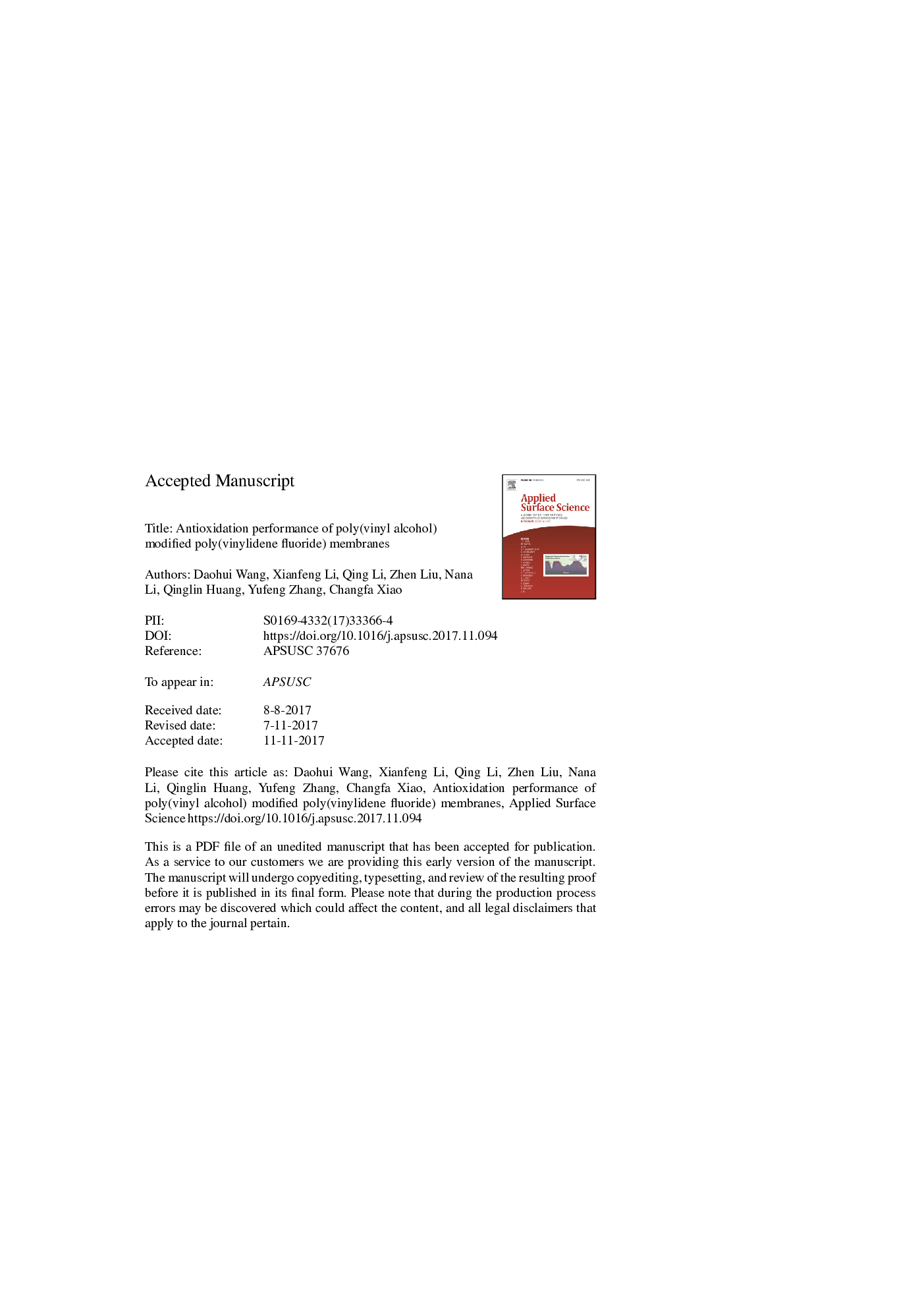| Article ID | Journal | Published Year | Pages | File Type |
|---|---|---|---|---|
| 7835896 | Applied Surface Science | 2018 | 24 Pages |
Abstract
Commercial poly(vinylidene fluoride) (PVDF) membranes were modified by dip-coating and crosslinking hydrophilic poly(vinyl alcohol) (PVA) on the membrane surface. The antioxidation performance of the modified PVDF membranes was evaluated via exposing the modified membranes to sodium hypochlorite and potassium permanganate solutions for 5-30Â days, respectively. The evaluation was based on the influences of the two oxidants on the permeability, rejection, and hydrophility of the modified membranes, which were characterized by water flux, ink rejection, water contact angle, x-ray photoelectron spectroscopy (XPS), field emission scanning electron microscopy, and x-ray diffraction (XRD) measurements. The XPS and water contact angle results show that the hydrophilicity of PVDF membranes was significantly improved when PVA was crosslinked on the surface of PVDF membranes. When the modified membranes had been treated with sodium hypochlorite or potassium permanganate for 30Â days, the permeability and hydrophilicity were basically maintained and the rejection was slightly decreased. XPS and XRD indicated that some of PVAs coated on the membrane surface could be oxidized and peeled.
Related Topics
Physical Sciences and Engineering
Chemistry
Physical and Theoretical Chemistry
Authors
Daohui Wang, Xianfeng Li, Qing Li, Zhen Liu, Nana Li, Qinglin Huang, Yufeng Zhang, Changfa Xiao,
